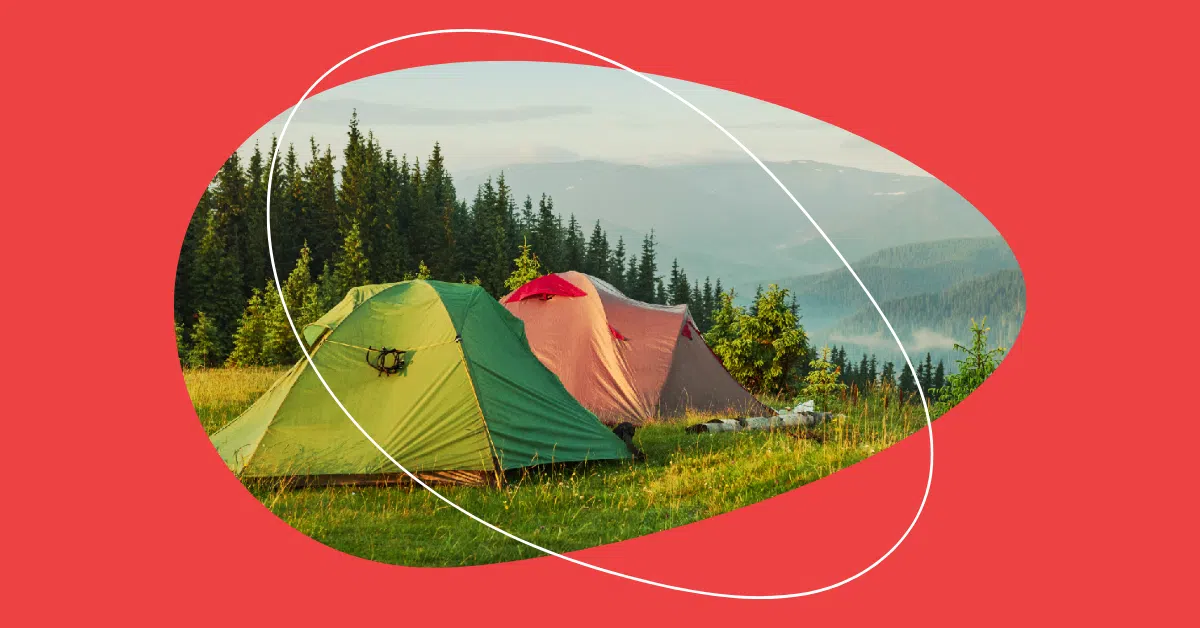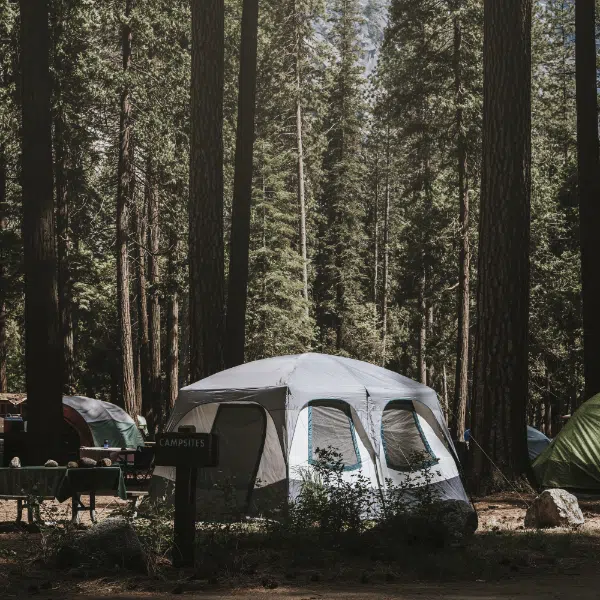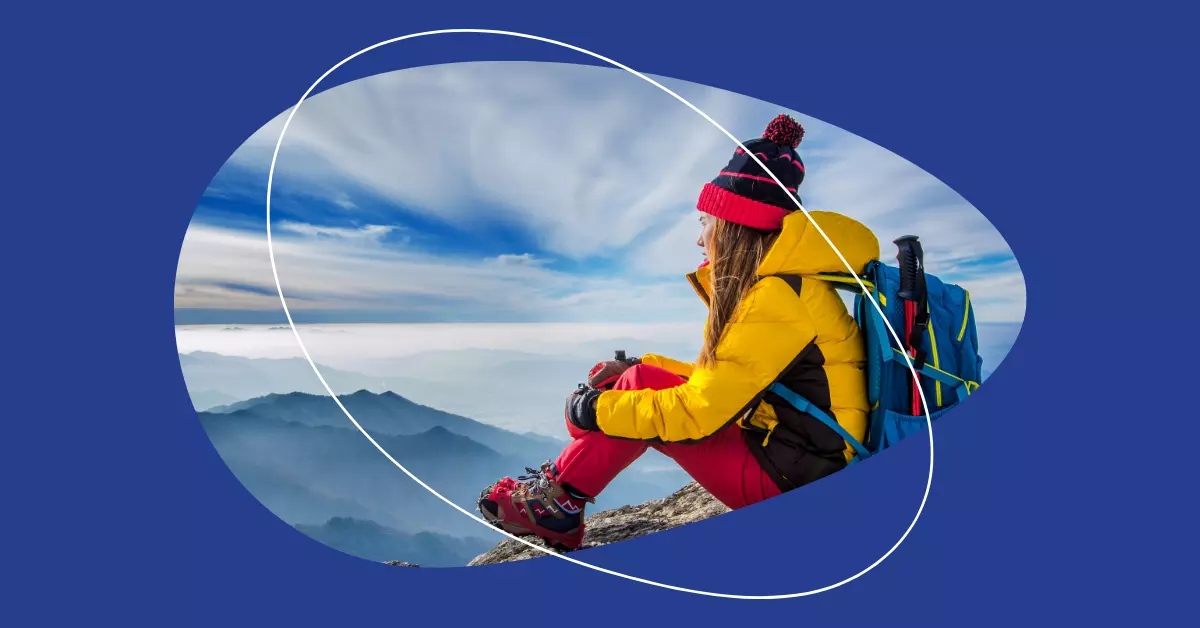Camping: History and Hacks for Camping Lovers

There is a sense of calm within the wilderness that often beats the comfort of our homes. What is this mysterious serenity that comes from sleeping under the stars?
Table of Contents
Introduction
Human migration is a part of history. Great armies have marched for thousands of kilometres to set up camp, lay siege and change the course of many kingdoms.
But that is not how modern people think when they go camping. For us, camping is a recreational activity where we set up a temporary residence in the outdoors under the beautiful star-studded sky. But before you think of camping as a date with the bugs, we want to remind you that the days of rough back-packing are over. Back-to-nature is now a thoroughly modernised affair.
History of Camping:
Recreational camping is ever evolving.
One can credit The Camper's Handbook (1908) by Thomas Hiram Holding in popularising outdoor camping in the United Kingdom. Holding's urge to camp is traced from his childhood experiences. He crossed the Prairies in the United States in 1853 with three hundred people in a wagon train covering approximately 1900 kilometres.
Holding would go on to found "The Association of Cycle Campers" in 1901 which became the first ever camping club in the world. By 1907, it was merged with other clubs and formed the Camping Club of Great Britain and Ireland.
In North America, individuals travelled on foot, horseback, or by canoe to camp in the wilderness for recreational purposes. There were many organizations such as Adirondack Mountain Club (founded in 1922), the Sierra Club (founded in 1892), but there was no organized camping. It was only after World War II when time for leisure increased, and motorised vehicles helped in growing the industry tremendously.
Here is a brief timeline of how modern-day camping came about:
-
1861: Fredrick Gunn founded the Gunnery Camp in Washington, Connecticut. He took a two-days hike with his children to experience the outdoors.
-
1874: YWCA established its first camp in Pennsylvania. The "Sea Rest" camp catered to women.
-
1885: YMCA camp setup in New York.
-
1899: Lord Baden- Powell, Founder of Boy Scouts, wrote "Aids to Scouting".
-
1900: First boy's club in Salem, Massachusetts.
-
1910: Boy's Scout of America, established in New York.
-
1912: First Girl's Scout camp established in Georgia.
-
1913: First overnight UK campsite in Walton.
-
1930s: Tents, camping gears, caravans made of wood began to be used for camping.
-
Present day: Now you get provisions of electricity, motorhomes, self-inflating mattresses, camping pods for safer, comfortable, memorable retreats.
Types of camping:
All forms of camping, whether primitive or modern, continue to grow in popularity especially in United States, Canada, and western Europe. Here are some definitions that you may find interesting:
-
Tent camping: Staying and sleeping in a tent, outside, for days and nights. The quadriceps, glutes and hamstring in your legs activate and work hard to prevent you from falling.
-
Motorhome camping: A form of camping in which people use RV travellers for a more comfortable camping experience. Increased blood flow helps in circulating essential nutrients from one part to another.
-
Glamping: Amazingly luxurious camping style with all modern amenities. Just chill your brains out.

A home away from home.
Things to do at camping:
Not that you are aware of the styles of camping, here is what you can do during a camping trip. This is our list but do feel free to add more in the comments.
-
Fishing
-
Swimming
-
Lounging
-
Boating
-
Water skiing
-
Snorkelling
-
Birdwatching
-
Night walks
-
Study the stars
Top 5 Camping Locations from Around the World:
-
Mount Cook National Park, New Zealand: Mount Cook is the highest mountain of the country.
-
Devon, England: The campsites on Dartmoor and Exmoor are fantastic places to pitch a tent and find unbeatable spots across the cliffs. Autumn is the best time to visit for watching the red sun dip over the horizon.
-
Loch Lomond and The Trossachs, Scotland: Scenic backdrop, romantic lochs (lakes in Welsh), sprawling caravan parks – take your pick.
-
The Alps, France: The Alps are a skiers' dominion. But there are several quaint villages nestled around the foothills that will make you gasp in delight.
-
Bonus: Glittering night skies.
-
Connemara Islands: West of Galway, the beautiful landscape cries out for exploration. View the Atlantic seascapes and explore the remote valleys.
Important Camping Equipments:
These are some camping must-haves:
-
Tents
-
Torch
-
Sleeping Bag
-
Air mattresses
-
Whistle
-
Lighter
-
Hammer
-
Hatchet
-
Ropes
-
Tarpaulin
-
Food Storage
-
Cooler
Top 5 Camping Hacks:
Why do we have a feeling that we got you packing for your camping trip? If you have start looking up the next location to pitch your tent, let us leave you with a list of our best camping hacks from the experts.
-
Use microfiber clothing: Soft, easy to store, dry within hours, bamboo fibre clothing is lightweight and can reduce the weight of your backpack.
-
Pack the right gear: Choose comfortable and budget friendly camping essentials like tent, sleeping bags, sleeping pads etc.
-
Pack warm clothes: Pack a set of warm clothes for time outside your sleeping bag. You do not want to fall short of warm clothes in the wild.
-
Line your bags: One needs to be prepared for Mother Nature's mood swings. One moment its warm and nice and the next moment it could pour. To waterproof your bags, carry inexpensive and easily available bin liners to keep your things dry throughout the trip.
-
Keep a pair of socks for sleeping: The comfort of sleeping in warm, clean socks is difficult to explain. Look at our camping specials at TalkingSox. Shop the camping collection here.
Conclusion
You will come across many campers who enjoy the occasional star gazing.
Your equipment should be packed properly. Always carry enough food. Be prepared for surprises by the weather. Do not forget to carry a first aid kit with you, for cuts and bruises, along with lots of sunscreen. Pack extra mosquito repellent with you. Wilderness is different.
Watch out for our special stories from TalkingSox happy campers this month.
Check out the complete Talking Sox collection here.




